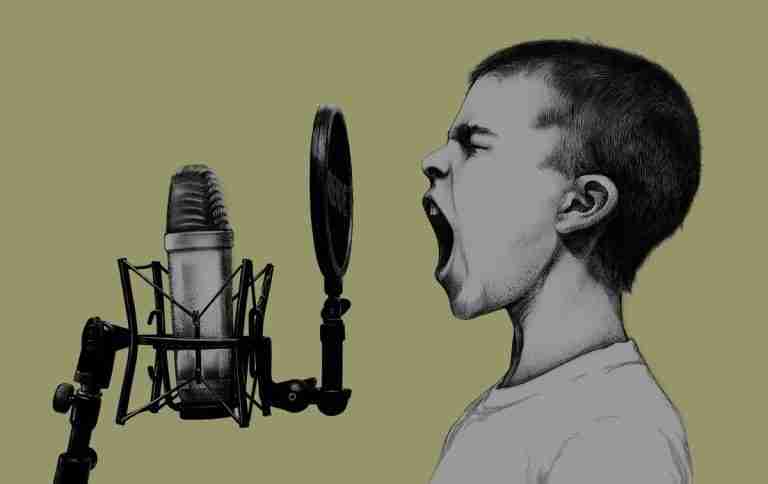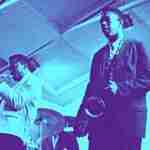Learning the hard way? You thought you came here to find an easier way to learn improvisation, right? Well to be honest, the easier way is not always the best way and if you’re in something for the long run, getting things right from the start can save you a lot of time and years of frustration…
Don’t let the title throw you, it’s not actually learning the hard way, it’s just learning, period. Over the years, the term “learning” has slowly come to mean something else…
Instead of actually studying and mastering a skill, “learning” has evolved into memorizing the main facts and pieces of a skill; in other words, the goal is proficiency rather than mastery.
When we learn something today, we often find the shortcuts that give us some results with the least amount of effort
We start with a guide book, an outline, a list of definitions, a cheat sheet, and we can even look up the answers if we get lost. Whatever the task is, we want to be able to perform it well right away. The actual skill is not as important as the end results.
This is not necessarily a bad thing, and in many cases it’s the most efficient way to learn things. If you want to pass an exam in school, memorize the formulas, the definitions, and the dates, and you’ll pass the test.
Traveling to another country? Get a guide book, learn a few key phrases in the native language, and you’ll be able to get around. Ultimately, we grab the main facts about a skill so that we can approximate the final product and get by.
However, for a skill like improvisation, this type of “learning” is not going to get the job done. Learning a few key concepts and lines will only go so far when it comes to playing over chord changes. Information and the memorization are helpful to a certain extent, but to improvise well, you need to acquire the actual skills themselves.
Analysis doesn’t equal understanding
Most of the jazz education resources out there today are based upon an analysis and reduction of the solos of the masters. Just take a quick glance at some popular titles on Amazon: 200 bebop lines, jazz patterns, essential jazz scales, the Omnibook of transcribed Charlie Parker solos.
All of these resources provide us with an outline of the main concepts of improvisation, but simply knowing these ideas doesn’t mean that we can perform them.
If we practice only from these books, we aren’t interacting with the music itself – the actual sound. Deep down we all know that using scales and theory as a crutch for improvising will one day catch up with us, however, it doesn’t change the easy appeal of these resources.
“You don’t memorize a piece of music…You know it.”~Mitsuko Uchida
This method of learning is limited and incomplete. Analysis is the easy part and it’s something that you can do this outside of the practice room. Study during your free time or right before you go to bed, but when you’re in the practice room, deal with the sound of music. Instead of relying solely on the scales, patterns, and rules that modern jazz education provides, go to the recordings and get this information for yourself.
To evolve as an improviser, you need to understand what is happening on a personal and emotional level, rather than an intellectual level. If you want to improve at improvisation in a meaningful way, change the way that you’re learning the music. After you’ve learned your scales and you understand the basics of theory, go straight to the records and jump right in.
Don’t know a tune? Great.
Never heard that solo before? Perfect.
Love that line, but completely confused as to how it works? Now you’re going to learn something.
The light bulb experience
We’ve all had those times when we’ve grappled with a difficult problem, and rather than spending the time to figure it out for ourselves, we took the easy route and went straight for the answers. How well do you remember the information that you learned this way? Could you recall it and apply it in a split second?
It is in these challenging situations that we are tested and progress the most. The hidden value in jumping right into the deep end with music and learning to improvise the hard way is the process by which you learn.
With no study guide or answers, we enter a completely different mindset open to the possibility of creating real improvement. We become lost, confused, and struggle to find something to grab onto. Our brain becomes activated. In this state of confusion we are forced to develop necessary skills in order to figure out the information.
After a period of frustration and confusion, a change suddenly occurs: a light bulb goes on and we instantly understand what we’ve been baffled by. After straining our ears and mind to figure out this elusive mystery, it becomes clear and our view of improvisation is completely altered. What was once unthinkable becomes obvious to us and we are able to hear it in everything that we listen to.
Some concepts will reveal themselves after a few minutes and others may take weeks, it all depends on your skill level and how much time you’ve spent learning in this fashion. Learning a tune by ear, straight from the record may take a week, but when you finally get it, you will have skills that you wouldn’t get from looking at a piece of sheet music.
Transcribing a difficult solo may take a month or even longer. Despite the time and frustration, when that light bulb goes on, you’ll understand the music on an entirely new level and be able to hear things you never thought possible.
When you make your own discoveries and figure out things for yourself those tunes, lines, and harmonic concepts become much more meaningful. Working through problems to the point of a “light bulb moment” creates lasting change. The things that you learn in this manner are personal. You discovered these ideas on your own and because of this, you will remember them for your entire life and understand them inside and out.
Having skills or just scratching the surface?
The art of learning improvisation can be a counter-intuitive process. The ways that we learn other skills through intellectual study and memorization alone won’t work here. We can spend hours practicing the exercises that we think will give us the skills that we need as improvisors, when in fact we are barely scratching the surface of what it means to improvise.
Running scales and arpeggios, memorizing the chord progressions to tunes, and analyzing solo transcriptions can be beneficial parts of your practice, but they are not going to give you the skills you need to create a great solo and navigate chord progressions in an interesting way. Yet, this is current method of teaching students to improvise.
The way that you learn the music directly affects the way that you’re going to perform. If you’ve only studied the intellectual aspects of the music, there are going to be some big holes in your playing. If you decide to take short cuts in your practice, then it will take longer to reach your goals. If you avoid the hard parts of practice, you’re not going to develop the skills you need as an improviser.
Take a player that has memorized a tune for a jam session. They’ve worked on the chord progression, memorized the appropriate scales, and have worked out a few licks. They sound decent over the tune and to most people, they appear to have their stuff together. Now take that same player and have them play over a tune they’ve never heard. Suddenly this same player is playing wrong notes, fumbling over the progression, and lost in the form.
The reason for this discrepancy is that they haven’t developed the skills of improvisation in their practice, they’ve only scratched the surface of harmony and melody. Scratching the surface may work for tunes that you’ve studied, but on the tunes you don’t, all you’ve got are your skills.
Take an honest look at your own playing and ask yourself these questions.
If someone called a tune that you didn’t know, could you:
- Quickly find what key it was in?
- Figure out the melody after hearing it a few times?
- Hear what chord tones the melody is landing on (root, third, b7, #11)?
- Differentiate the qualities of the chords (Major, minor, dominant)?
- Hear the chord changes and identify common progressions (ii-V7s)?
- Figure out the form of the tune?
- Hear the time signature?
- Sing a solo by ear over the tune?
- Apply language that you’ve developed over this tune? (Do you have language that you’ve transcribed?)
These are the skills that you need as an improviser and the way that you get them is by learning straight from the record the hard way. It’s no coincidence that all of the above skills involve the ear. If you didn’t answer “yes” to all of the above questions, then it’s time to reevaluate how you are learning this music.
It’s not going to be easy…at first
Learning improvisation in this way is by no means going to be a walk in the park. It will be frustrating, confusing, time-consuming, and flat-out difficult. However, the rewards will truly transform your playing and what’s more, you will have a solid grasp of improvisation. You’ll quickly develop your ears and be able to hear melodies, chord progressions, and intervals. You will inherently understand harmony, develop phrasing and articulation, and ingrain these musical principles indefinitely.
Along the way, it will be tempting to take the easy way out. In seconds you can grab a real book and look up the chord progression. You can buy a book of transcribed solos and see the lines right there on the page. You can look up an analysis of Bird’s solos with an outline of his concepts. But, are you truly learning these skills or are you just finding a temporary solution to a problem?
If going straight to the recordings is so beneficial, then why don’t more musicians learn this way?
Because it’s hard, and we inherently don’t want to do things that take more work. I know this feeling well. Many times in the past, I started to learn a tune by ear or began to transcribe a solo and after a few bars, gave up in frustration; it just seemed downright impossible. This is something that we all encounter and something that we must overcome if we want to achieve our goals.
So, this leaves you with a choice. You can take the easy way out: memorizing information (scales, licks, patterns), reading tunes out of a book, and relying on the rules that others have given you. Or, you can do it the hard way. You can push yourself to learn these solos by ear, you can spend the time to figure out the melodies and chord progressions to tunes, you can make your own discoveries about the music.
It may seem an obvious choice at first to let others do the work for you, but after years of this, you’ll find yourself in the same place musically: unable to memorize large numbers of tunes, frustrated with your ability to improvise, and baffled about the “mystery of improvisation.” You will be putting in the time trying to learn, but you won’t be seeing the results that you’ve envisioned. The goal of becoming that great improviser will continually lay just beyond your reach.
However, if you put in the work and learn this music the “hard way” with your ears directly from the record, you’ll build a solid foundation of the skills you need to become a great improviser. Remember, it’s only hard at first because you haven’t developed these important skills, so stick with it when things seem frustrating and impossible. Over time, the hard way will eventually become the easy way, the fun way, and the only way to really learn this music.












